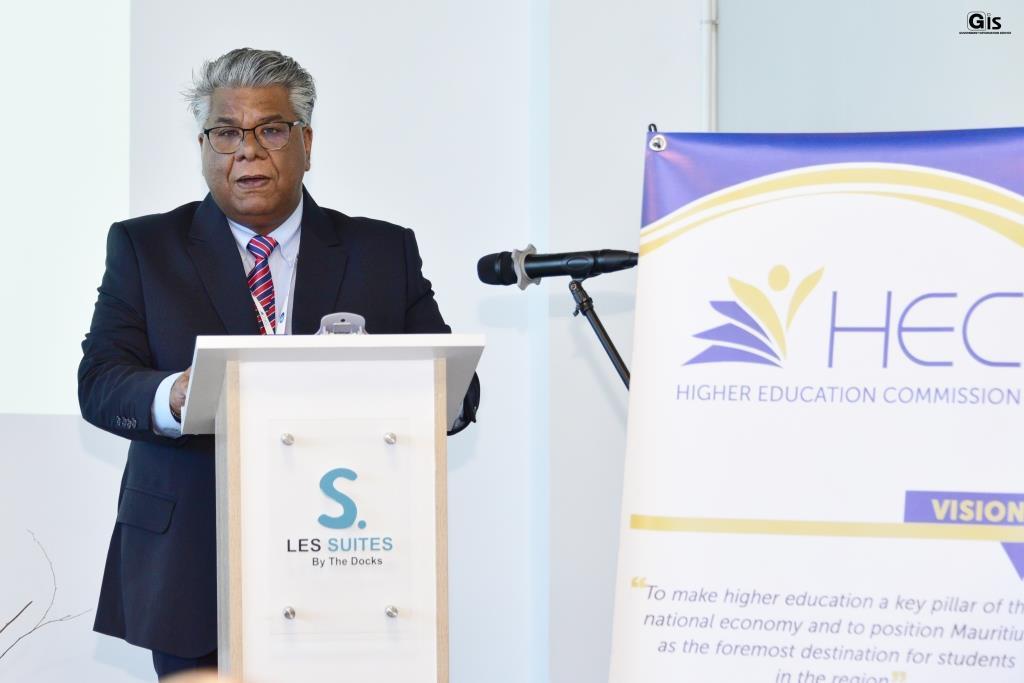
Africa-Press – Mauritius. A three-day workshop, spearheading deliberative stakeholder consultations on the five guidelines devised by the Higher Education Commission (HEC), the Mauritius Qualifications Authority (MQA) and the UNESCO International Institute of Educational Planning (IIEP), for the development of the National Micro-credentials Framework for Technical and Vocational Education and Training (TVET) and Higher Education, kickstarted, this morning, at The Docks, in Port Louis.
Micro-credentials are, in fact, certified short courses and training, offered on a flexible basis. These short-term learning experiences endow individuals with tailored knowledge, skills and competencies, critical for their personal and professional growth.
The Chairperson of the HEC, Dr Abdess Salem Saumtally; the Chairperson of the MQA, Mr Rajnarain Guttee; the Commissioner of the HEC, Prof Romeela Mohee; the Officer-in-Charge of the MQA, Dr Ramesh Ramdass; IIEP UNESCO Programme Specialist, Dr Michaela Martin; representatives from TVET and higher education institutions; and other personalities attended the launch event.
In his address, Dr Saumtally stressed the imperativeness of introducing micro-credentials to scale up efforts to aligning the current educational landscape of the country with the dynamic global trends. “Many countries such as Malaysia, Thailand and South Africa,” he indicated, “are embracing and leveraging from the micro-credentials framework.” “Hence, Mauritius should follow suit,” he affirmed. On this score, Dr Saumtally extended his gratitude to the IIEP for supporting Mauritius in this endeavour.
For his part, Mr Guttee stipulated that one of the key strategies outlined by the National Skills Development Strategy 2022-2026 focused on skills development. “Fuelling the 21st century economy,” he pointed out, “necessitates both upskilling and reskilling.” “The implementation of a robust micro-credentials framework is necessary when envisioning for a skills-driven future,” he added. Moreover, the Chairperson averred that the MQA would ensure that the National Qualifications Framework ascertained the recognition of the short courses provided.
As for Prof Mohee, she reiterated the significance of flexible and lifelong learning, and emphasised on how the micro-credentials adapt to the diverse evolving needs of individuals. Additionally, she dwelt on the HEC initiatives toward Flexible Learning Pathways, including the COL Skills for Work project that offered scholarships to some 4,000 learners who followed more than 10,000 courses, and an estimated 500 scholarships allocated to the Special Education Needs Authority.
Besides, Dr Ramdass described micro-credentials as bite-sized qualifications that advanced the personal and professional development of, especially, the disadvantaged groups. According to Dr Martin, micro-credentials sought to bridge the gap between traditional and skills-based education. “Learners are, therefore, empowered and are better placed to meet the needs of industries,” she underscored.
For More News And Analysis About Mauritius Follow Africa-Press






